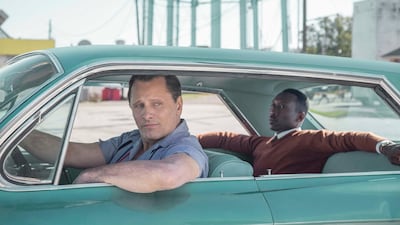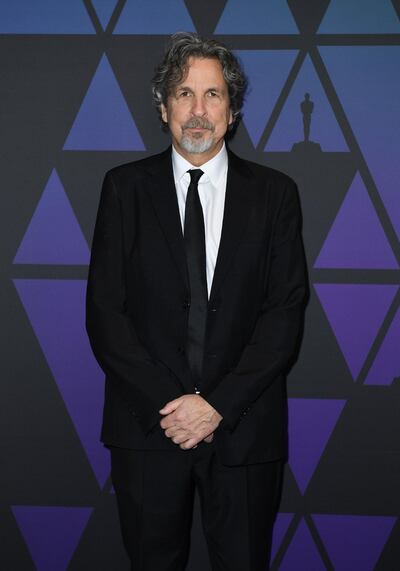Making a movie that entertains and enlightens in the same breath? "It looks easy," Viggo Mortensen says. "But it's very difficult." The actor, famed for playing Aragorn in The Lord of the Rings, is talking about Green Book, the new film by Peter Farrelly about a real-life African-American concert pianist and his racist Italian-American driver, touring the divided Deep South in the 1960s. The film won the People's Choice Award when it had its premiere at the Toronto International Film Festival in September, and it has been picking up prizes wherever it has played since.
"I think it's a refreshing way to deal with important issues without making a 'message' movie," says Mortensen, who plays the streetwise Tony Lip opposite Mahershala Ali's classically educated Dr Don Shirley. Better known for his gross-out comedies such as Dumb and Dumber, Farrelly calls it a classic odd-couple story. "Those guys came from completely the opposite ends of the spectrum: black concert pianist, five doctorates; Italian bouncer, sixth-grade education and racist." Put them in a car together for an extended journey and "there's either going to be an explosion or they're going to come together. Or both."
As the pair travel through the segregated South, Tony comes to see up close a distasteful world where black people were made to use toilets outside and couldn’t even try on clothes they were buying in shops. “In 1962, there is very little debate,” Mortensen says. “This is the way it was. These were the problems and the way people spoke to each other at the time.” The title even refers to a guide, The Negro Motorist Green Book, available to African-Americans travelling through the region, giving advice on which motels were safe to stay in.
“We stumbled upon that,” Farrelly says. “We were maybe a third of the way through the script when we found out about that.” It came from recollections by the real Lip, videotaped years earlier by his son (and the film’s co-writer) Nick Vallelonga, when he realised there was a great story to be told. “I don’t know anybody who knew of that book,” Farrelly says. “My black friends, I would say eight out of 10 didn’t know about that book. Older guys know. Black guys who were around in the 50s and 60s, [they would say]: ‘Oh, yeah, we had that book.’”
While the film has been compared to the 1989's Oscar-winning Driving Miss Daisy, which saw a black driver and a white woman in the back seat, Green Book has received criticism from some quarters. Slate called it a film where "a white man makes his first black friend", and the story has been knocked for pedalling the so-called "white saviour" narrative, as Tony is the one who protects Dr Shirley. The same goes for a scene in which Tony – a man of huge appetites – entices his boss in to eating fried chicken, with all the negative African-American stereotypes that brings to mind.
While this may account for why Green Book has taken just US$8 million (Dh29.4m) at the American box office, the film is now entering awards season. In the United States, the National Board of Review just awarded it Best Film, with Best Actor going to Mortensen, who gives a sensational performance; almost certainly there will be more to come.
Moreover, arriving in a United States still reeling from the racial hatred of events in Charlottesville last year, it’s a film that feels utterly timely. Maybe it’s not a film for liberals, but for the more conservative, Mortensen says. “It might open some people’s minds, I think.” And that has to be worth celebrating.

Green Book is in cinemas across the UAE from Thursday


